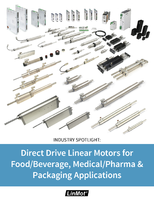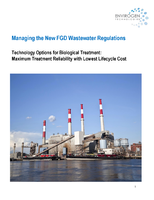Standard covers fatigue testing of medical device fine wire.
Press Release Summary:
Solid, round, fine wire is often used in devices such as catheter guide wires, stents, and containment vessels. ASTM E2948, Test Method for Conducting Rotating Bending Fatigue Tests of Solid Round Fine Wire, will be used to determine fatigue life characteristics of such wire in order to assess reliability. Test method describes procedure for performance of rotating beam fatigue tests of small diameter wire at specified life in fatigue regime where strains are predominantly and nominally elastic.
Original Press Release:
New ASTM Standard Issued for Fatigue Testing of Fine Wire Used in Medical Devices
Solid, round, fine wire is often used by the medical industry in devices such as catheter guide wires, stents for the repair of arteries and containment vessels such as vena cava filters. A new ASTM International standard, ASTM E2948, Test Method for Conducting Rotating Bending Fatigue Tests of Solid Round Fine Wire, will be used to determine the fatigue life characteristics of such wire in order to assess its reliability.
“Fatigue strain values at specific cyclic lives are of interest to both the wire manufacturer and consumer for production control, design and material acceptance,” say ASTM members K.L. Jerina and M.R. Mitchell.
“ASTM E2948 will be useful in assessing the effects of internal material structure, such as inclusions, in melt technique and cold work processing studies.”
The new test method describes a procedure for the performance of rotating beam fatigue tests of small diameter wire at a specified life in the fatigue regime where the strains are predominantly and nominally elastic. Material suppliers and devices manufacturers have used various methods to assess fatigue life, but ASTM E2948 is the first standardized method for such testing of fine wires.
“The standard can be useful, for example, in assessing the effects of internal material microstructure in melt technique, surface modifications and cold work processing studies,” say Jerina and Mitchell. “The current procedure used in industry was incorporated into ASTM E2948 and consists of a test method that requires a simple loading device and simple data reduction.”
ASTM E2948 was developed by Subcommittee E08.05 on Cyclic Deformation and Fatigue Crack Formation, part of ASTM Committee E08 on Fatigue and Fracture.
The task group that developed ASTM E2948 is seeking material suppliers and laboratories with E2948 testing capability to participate in an interlaboratory study in order to develop data for a precision and bias statement.
To purchase ASTM standards, visit www.astm.org and search by the standard designation, or contact ASTM Customer Relations (phone: 877-909-ASTM; sales@astm.org). Â ASTM International welcomes participation in the development of its standards. For more information on becoming an ASTM member, visit www.astm.org/JOIN.
For more news in this sector, visit www.astm.org/snmetals or follow us on Twitter @ASTMMetals.
ASTM Committee E08 Next Meeting: Nov. 1013, 2014, November Committee Week, New Orleans, La.
Technical Contact: K.L. Jerina, Washington University, St. Louis, Mo., Phone: 314-935-4960; jerinak@seas.wustl.edu; and M.R. Mitchell, Mechanics and Materials Consulting LLC, Flagstaff, Ariz., mrmitchell@illinoisalumni.org
ASTM Staff Contact: Jeffrey Adkins, Phone: 610-832-9738; jadkins@astm.org
ASTM PR Contact: Barbara Schindler, Phone: 610-832-9603; bschindl@astm.org




